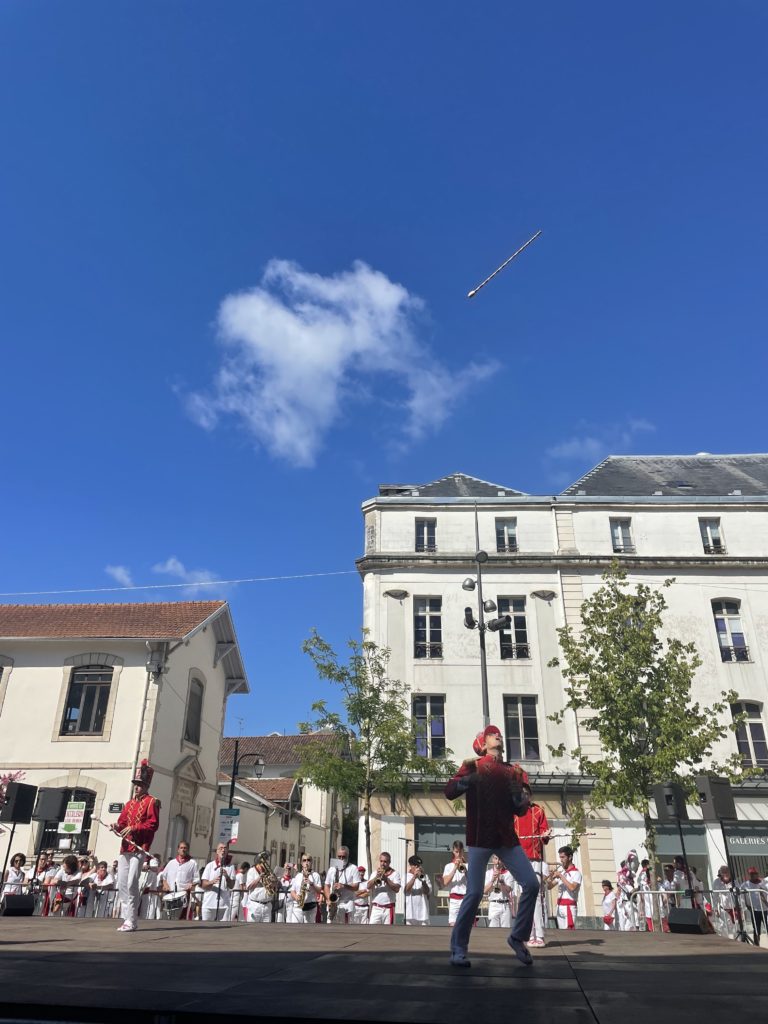Hopla! This has to be one of my favorite French sayings so far. It sounds so enthusiastic and whimsical. It’s a phrase I hear everyday, whether from my French teachers, the hostel owners, or the woman who works in the boulangerie I regularly frequent. From conversations with my French friends, I have found that “hop la!” can essentially be used to express a change in conversation, exasperation, or just make noise in response to practically anything (I especially hear it when people accidentally trip). Put simply, “hopla” essentially brings attention to something that is happening. For instance, while I am cooking in the hostel I often will drop something, so I will quickly be met with “hopla!,” almost like a French version of “Opa!” with a similar sound and a similar meaning.

Another one of my favorites has to be “ouf!” which I initially related to the English “oof!” to express that something unfortunate might have happened. However, “ouf” is the inverse of “fou” to express the same meaning – crazy. When I surf with my French friends, I’ll often hear “les vagues sont ouf,” indicating that the waves are “crazy” good. From discussing with my French friends, “ouf” is essentially the equivalent of the positive connotation of “sick.”
“Ouf” and “hop la” have been some interesting sayings that I haven’t heard in my previous French classes, until I started noticing my French teacher saying “hopla!” very frequently, along with “du coup” and “en fait.” “Du coup” is intended to mean “also” or “so” but is often used as a filler word, similar to the usefulness of the interjection of “like” into the middle of sentences. “En fait” is another phrase I try to weave into my conversations with French speakers to sound more French, because it is heavily used by the French as well, meaning “actually.”
In a similar vein to “hopla!,” I often hear the utterances of “tak tak tak” when my French friends or cashiers are completing certain tasks. As I was writing this blog post, I was working in a café by my school as I heard the cashier ringing someone up, and as he was typing in their order, it was accompanied by “tak tak tak.” I have loved living in France to really start noticing the certain French sayings that often don’t directly translate into English, such as “tak tak tak.” I have started noticing myself absentmindedly muttering “tak tak tak,” along with “hopla,” which really helps me see the benefits of fully immersing myself in the French language and culture. While constantly speaking in French has certainly been mentally strenuous at times, it is certainly exciting to see the brain fatigue pay off by absorbing French habits.